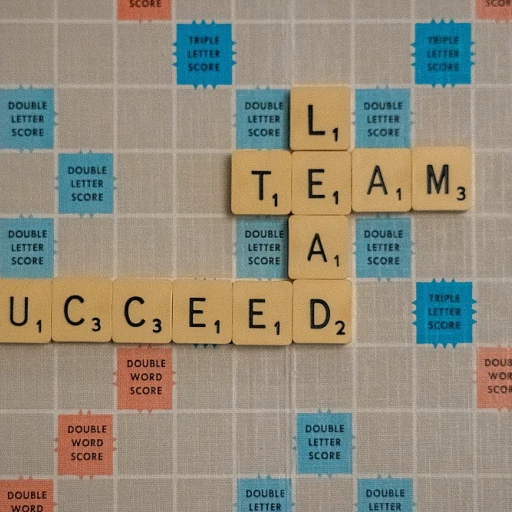
Understanding the Role of a Chief Human Resources Officer
Exploring the Mission of a CHRO
In today’s dynamic business landscape, the role of a Chief Human Resources Officer (CHRO) has evolved far beyond the traditional understanding of managing human resources. The position demands a multifaceted blend of strategic thinking and operational expertise, positioning the CHRO as a pivotal player in steering organizational success.
At the core of a CHRO's responsibilities is crafting development objectives that not only align with the company's mission but also foster a culture of growth and employee engagement. This involves a comprehensive understanding of both short and long-term goals that impact professional development and overall performance. A CHRO is expected to set and achieve development goals that seamlessly integrate with the larger objectives of the business, thus playing a key role in propelling the organization forward.
The CHRO has oversight of various domains including talent management, leadership development, and team dynamics, ensuring each aligns with the company’s strategic goals. In this context, objective-setting becomes a strategic tool to elevate leadership, enhance communication skills, and drive employee development in a way that is both effective and measurable.
Moreover, the rise of remote work has introduced fresh challenges into the mix. One must navigate complexities effectively [Navigating remote work training and development]. The CHRO is tasked with honing in on innovative solutions that facilitate seamless transitions while maintaining high standards of management and communication, crucial for fostering a cohesive work environment.
Ultimately, understanding the depth and breadth of the CHRO's role sets the stage for defining clear, actionable development objectives. These objectives not only drive personal and professional growth but also contribute to cultivating a robust organizational structure capable of adapting to an ever-changing business environment.
Key Skills Required for a CHRO
Core Competencies Essential for Success
Chief Human Resources Officers (CHROs) require a robust set of skills to effectively lead and manage HR functions within an organization. Their role is multifaceted, encompassing various aspects of workforce strategy and operations that demand continuous professional development and enhancement of their competencies. A successful CHRO must demonstrate strong leadership capabilities. This involves not only guiding the HR department but also influencing the broader organizational culture and demonstrating exceptional communication skills. Effective communication helps ensure clarity in expectations, fosters an inclusive work environment, and navigates complex situations involving employees and other stakeholders. Strategic Decision Making For a CHRO, strategic decision-making skills are non-negotiable. These professionals need to evaluate complex situations and develop long-term and short-term strategies that align with the organization's overall goals. Decision making is integral to setting performance and development goals, which help in improving employee performance and career progression. Adaptability and Problem Solving In today’s dynamic work environment, adaptability and problem-solving skills are essential. CHROs must be agile and capable of addressing everything from everyday HR issues to unexpected challenges. Their ability to devise innovative solutions can substantially elevate the organization's resilience. Project Management and Time Management Efficient project management skills are crucial for managing HR initiatives, such as employee development programs and policy changes. Coupled with solid time management skills, CHROs can ensure projects are executed smoothly, on time, and within scope, thereby enhancing organizational performance. Technical and Customer Service Proficiency Incorporating technical skills is increasingly important as HR technology evolves. This includes understanding HR software systems and data analytics, which facilitate data-driven decisions. Moreover, delivering excellent customer service to internal clients is vital, as it reflects the HR department's overall effectiveness. Empowering employee development is also a key responsibility for CHROs, where their ability to facilitate learning and growth among employees is pivotal for achieving organizational and personal development goals. For more insights into crucial skills for CHROs, explore the dynamics of student transfer scenarios, which offer valuable perspectives on continuous learning and skill enhancement.Setting Development Objectives: A Strategic Approach
Crafting Development Objectives Wisely
Setting professional goals is a nuanced process that demands attention, especially for a Chief Human Resources Officer (CHRO). Creating effective objectives starts by aligning them with both long-term organizational needs and personal career aspirations. To achieve this, being strategic in your approach is key. Start by embracing a holistic view of your current skills and areas for improvement. This might involve assessing existing management skills, communication skills, and technical know-how, alongside looking at leadership and decision-making abilities. Creating clear performance goals in these domains can further bolster one's effectiveness at work. To set meaningful development objectives, consider the following strategic steps:- Identify Core Competencies: Understand which skills help drive your role and team forward. This encompasses improving customer service protocols, decision-making prowess, and enhancing time management.
- Integrate Short and Long-Term Goals: Balance immediate needs with vision for future growth. Short-term goals may involve honing project management capabilities or advancing problem-solving techniques, whereas long-term goals may focus on comprehensive team leadership development.
- Focus on Continuous Learning: Establish a routine for professional development that incorporates consistent learning and embracing new challenges. This could include attending workshops, taking online courses, or seeking feedback from peers and employees.
- Incorporate Employee Development: Align your personal growth path with the development of your team. Set objectives that not only elevate your career but also foster an environment where employees can thrive and learn from your leadership.
Examples of Development Objectives for CHROs
Illustrative Development Goals Tailored for CHROs
To effectively navigate the dynamic landscape of human resources, Chief Human Resources Officers (CHROs) must focus on setting development goals that drive personal and organizational success. Establishing clear professional development targets helps in addressing both short-term achievements and sustainable, long-term progress. Below are several illustrative examples of development objectives that CHROs can consider:- Enhancing Leadership and Management Skills: A critical long-term goal involves honing leadership capabilities, which contributes significantly to the overall performance of the HR team. By focusing on management skills, CHROs can better guide their teams, influence strategic decisions, and implement effective employee development initiatives.
- Strengthening Communication Skills: Considering the pivotal role of CHROs in fostering company culture and employee satisfaction, improving communication skills is essential. This might include rigorous training sessions that enable better interaction with employees at all levels, thereby boosting morale and engagement.
- Mastering Time and Project Management: Efficiently managing time while balancing various projects is critical. Setting specific performance goals to improve time management not only enhances productivity but also influences team performance positively. Initiating project management training can aid in achieving these goals.
- Developing a Responsive Learning Environment: Creating and nurturing a learning-friendly environment is a professional goal that supports continuous improvement and innovation. CHROs can lead by example, encouraging a culture of growth where employees are motivated to learn new technical skills and enhance their problem-solving abilities.
- Integrating Advanced Decision-Making Techniques: In the realm of human resource management, applying sophisticated decision-making techniques allows for proactive problem-solving and strategic planning. This goal involves identifying cutting-edge methodologies that enhance the decision-making process, thus improving customer service and internal operations.
- Focusing on Employee Development and Experience: A crucial component of any CHRO's development objectives is fostering comprehensive employee development programs. These initiatives should be designed to align with career goals and improve overall team performance by addressing individual employee needs.
Overcoming Challenges in Achieving Development Objectives
Confronting Barriers to Objective Fulfillment
Navigating the path toward achieving development goals as a Chief Human Resources Officer (CHRO) can be fraught with challenges. Overcoming these hurdles requires a strategic approach that involves both introspection and proactive measures. As CHROs work towards enhancing their leadership and management skills, they may face challenges related to time management, resource allocation, or even the fast-paced changes in the workforce landscape. One common obstacle is the dynamic nature of employee needs and expectations, which necessitates adaptable communication skills and problem solving capabilities. CHROs should be prepared to modify their professional goals to align with short term changes while keeping an eye on long term objectives. Developing a robust understanding of project management can help in allocating resources efficiently and meeting both immediate and future demands. Adapting to technological advancements also presents its own set of challenges. CHROs must continuously learn and upgrade their technical skills to stay relevant in implementing new systems and processes that support employee development and improve overall work performance. Leadership and decision making are crucial in surmounting challenges. By fostering a supportive team environment and encouraging professional development, CHROs can maintain motivation and drive among their employees, thus aiding in the achievement of set goals. Lastly, balancing a variety of responsibilities often extends beyond typical hours, affecting personal development avenues. Time management becomes critical here. By setting clear priorities and delegating tasks effectively, CHROs can focus on both customer service excellence and goal attainment, facilitating a successful career progression and improved performance outcomes. While these challenges can hinder progress, a keen focus on consistent improvements and adaptive strategies can help CHROs achieve their development objectives efficiently in the ever-evolving corporate environment.Measuring Success and Continuous Improvement
Evaluating Achievement Through Metrics and Improvement
Effectively measuring progress and fostering continuous improvement in the realm of human resources involves evaluating a variety of performance metrics. Chief Human Resources Officers (CHROs), with their skills in strategy and management, prioritize understanding both short term and long term objectives not only to improve their own performance but that of their teams and employees.- Set Clear Performance Metrics:
- Developing specific performance goals that are aligned with the overall strategy of the organization is crucial. These goals serve as benchmarks to measure success and facilitate career growth.
- Metrics could include employee satisfaction scores, retention rates, or the successful implementation of leadership development programs.
- Utilize Time Management for Consistent Assessment:
- Set periodic check-ins to evaluate the progress of the set goals and objectives. Regular reviews enable the CHRO to make timely adjustments, ensuring the path to achieving those objectives remains unimpeded.
- Embracing efficient time management skills allows gradual assessment, offering opportunities to tweak efficiencies in real time.
- Promote Leadership and Learning Opportunities:
- Encouraging team members to learn and grow through professional development enhances their capacity to meet performance goals. This, in turn, advances the CHRO's leadership objectives as employees become more adept in decision making and problem solving.
- Foster a Culture of Feedback and Continuous Improvement:
- Establishing an open and dynamic feedback loop helps in identifying areas where management skills such as communication or project management can be enhanced.
- Emphasize on an adaptable human resources management approach that thrives on continuous employee input towards service and operational improvements.
- Incorporate Technology and Technical Skills:
- Leveraging technology to collect and analyze data corroborates informed decision making. These insights help in refining employee development goals and enhancing customer service delivery.
- Continuous learning to enhance technical skills ensures that the CHRO and the team remain competent and competitive.













